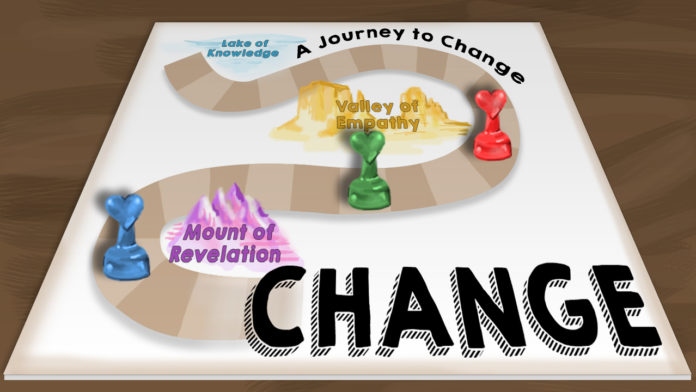Recently, a story came out about a girl who went on a date with actor Aziz Ansari in which she detailed how she felt uncomfortable with the way he behaved and pressured her into performing sexual acts. While the woman and journalist who wrote the article paint the situation as harassment, many critics have come out saying Ansari did nothing wrong. An opinion article in the New York Times titled “Aziz Ansari Is Guilty. Of Not Being a Mind Reader” argues that Ansari did nothing wrong and that it was the woman’s fault for not forcefully ending “the hook-up.”
After the story came out, a tweet circulated that said, “If what Aziz did was harassment then every woman I know has been harassed.” Yes, exactly.
The point of these movements is that we need a change in the way sexual assault is viewed. You, too, may read the account about Ansari and not traditionally think of it as assault or harassment. However, what women are saying through these movements is that what has been widely considered “normal” or “acceptable” isn’t OK. It is going to be uncomfortable to talk about rape culture, but we need to work through it as a society. And it cannot just be women; guys who may think they are “good guys” may need to re-evaluate their behavior and see what they can do better.
U.S. Representative Patrick Meehan, a Republican from Pennsylvania, used thousands of dollars in taxpayer money to settle a sexual misconduct complaint against him from a former aide, according to the New York Times. Meehan is a member of the House Ethics Committee, a group tasked with investigating sexual misconduct claims against other congressmen. Meehan reportedly repeatedly referred to his aide as his “soulmate” and “lashed out at her” when he found out she had a boyfriend. Reports from other office employees claim Meehan told the aide of his romantic desires for her, in person and in a handwritten letter. He is said to have acted hostilely toward her after she told him she didn’t feel the same.
While Meehan does not deny that he had a “deep affection” for her and that she was his “soulmate,” he maintains that his behavior was not sexual harassment. It should be common sense that this behavior is unacceptable, especially in a workplace. Movements like #MeToo and #TimesUP only reaffirm this notion.
Former team doctor for USA Gymnastics and former faculty member at Michigan State Dr. Larry Nassar’s trial also teaches us how things need to change moving forward. There is absolutely no justifiable reason he should have been able to abuse more than 150 girls and women. Many of them told parents, coaches, friends, police, etc. and were not believed. When someone comes to you and says they have been assaulted, instead of going into the situation looking for reasons not to believe them as the default, we need to, as a society, take women’s claims of assault more seriously. Unfortunately, men have lost the benefit of the doubt when it comes to sexual assault and harassment, so our default reaction needs to become believing women when they tell their stories.
Some ways society can change the culture at large is by having more women in positions of power and by having comprehensive sensitivity training for those in professions that deal with victims of sexual assault, including police officers, doctors, and judges. By having more women in these fields and increased sensitivity training we can move toward a culture that can better care for survivors and better deal with assailants.
We should not need these movements to tell us how to properly treat women and sexual assault survivors, but we do. We cannot brush these instances off thinking that other people in our life know what is and isn’t appropriate. We need to be actively working to change the conversation regarding sexual assault and harassment. Educate yourself and educate your friends and family when if you hear them contributing to a culture than downplays rape.






